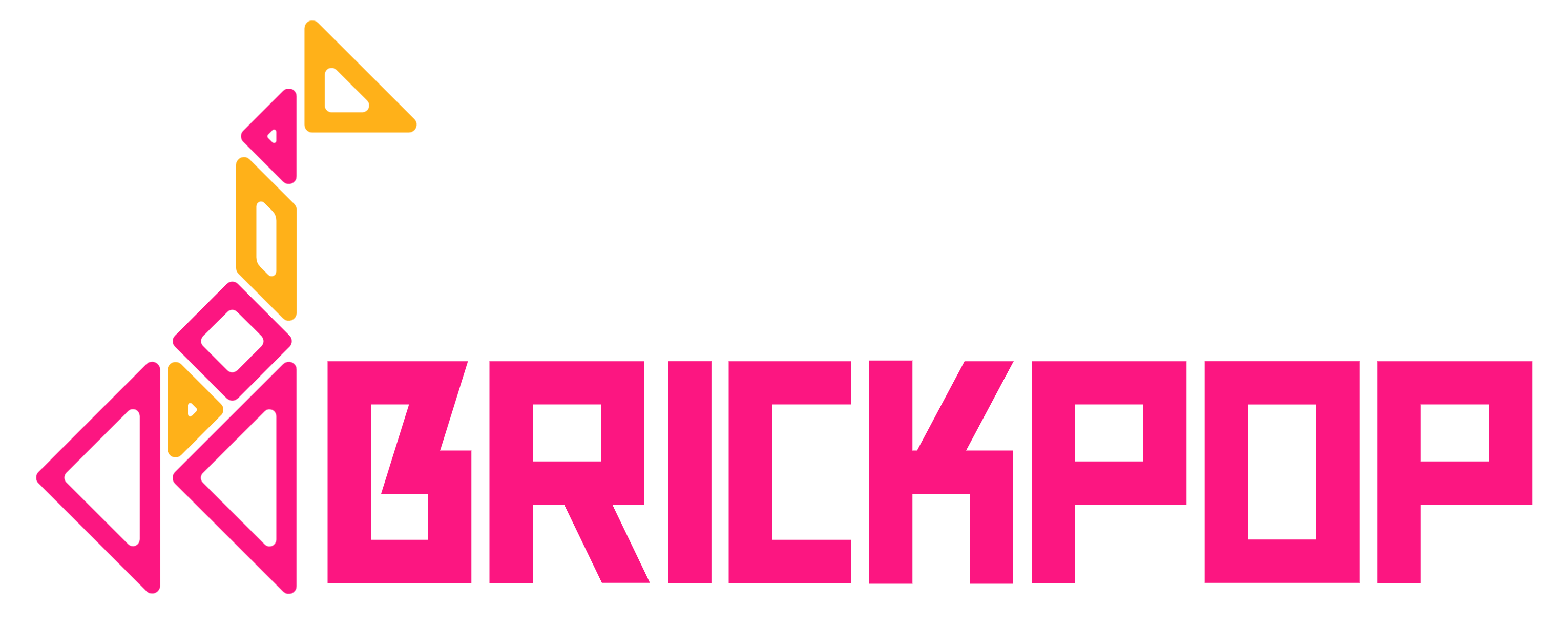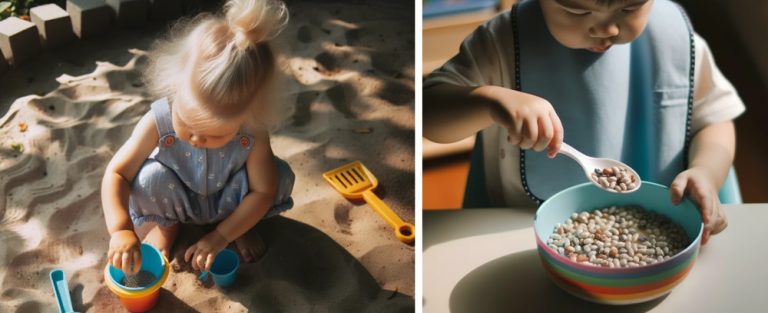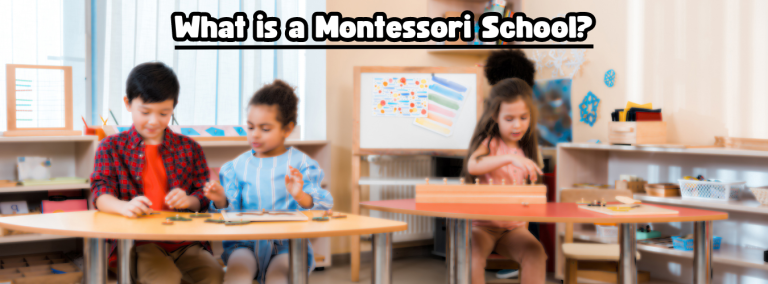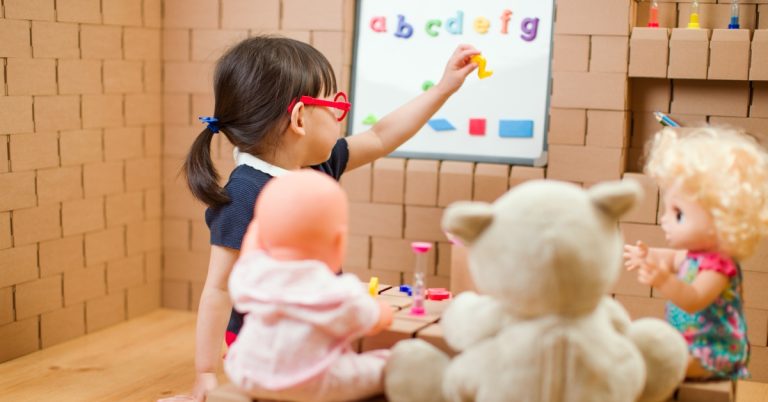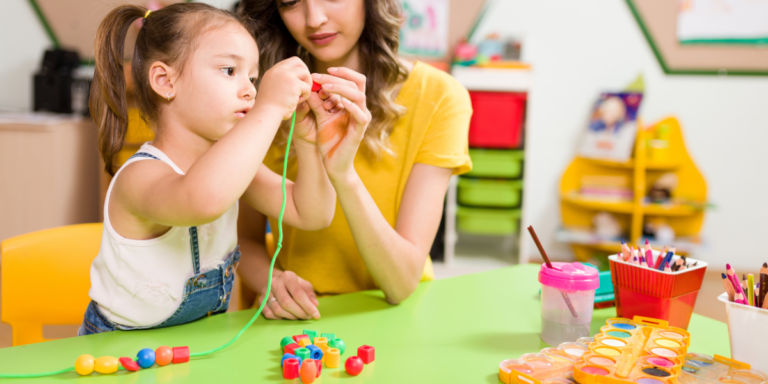The Complete Guide to Stages of Early Child Development

Understanding the stages of early child development is essential for parents, caregivers, and early childhood educators. Each stage from birth to 5 years old brings physical, cognitive, social-emotional, and communication/language developmental milestones that lay the foundation for lifelong learning and growth.
This comprehensive guide will explain the key things to expect in each early developmental stage. We’ll cover the major milestones, skills gained, and how to best support children’s growth. Use these age-based developmental guides to help monitor progress and foster development during the critical early years.
Why Are the Early Developmental Stages So Important?
The first five years of a child’s life see astonishing brain development and rapid skill acquisition across physical, mental, emotional, and social domains. Early experiences shape the structural foundation of the brain for life. There are different stages of child development and it’s important that kids continue to develop all of their physical and mental skills.
Nurturing Environments are Vital
That’s why ensuring nurturing, stimulating environments during these formative years is so crucial. When developmental needs are not sufficiently met in early childhood, the impacts can be profound and long-lasting.
Positive Interactions and Communication Helps With Development
For example, deficiencies in interaction and communication in the first years can impede language abilities. Lack of movement opportunities delays motor skills. Inadequate response to emotional needs can result in poor self-regulation and behavioral challenges.
Identify Developmental Delays Early
The earlier any developmental delays or disorders are identified, the quicker interventions can begin to get children back on track. All kids progress at their own pace, but understanding standard milestones guides parents in providing the best support during each critical stage.
The 5 Key Stages of Early Child Development
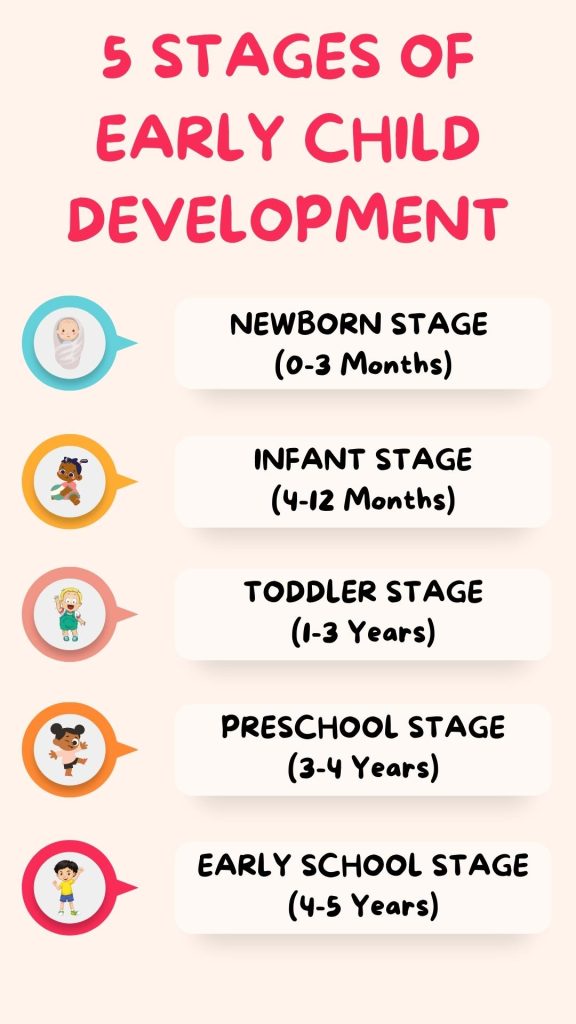
Child development from birth to 5 years old occurs in generally sequential stages marked by distinct milestones:
Stage 1: Newborn (0 To 3 Months Old)
The newborn stage, spanning from birth to around 3 months old, is a period of change and growth for both the baby and parents. During this time, infants are adjusting to life outside the womb, and parents can expect various developments, such as establishing sleep patterns, learning to recognize their baby’s cues, and forming a strong bond through caregiving and nurturing. Newborns often need frequent feeding, diaper changes, and comfort, and parents should be prepared for a mix of joy, exhaustion, and a steep learning curve as they adapt to their new role as caregivers.
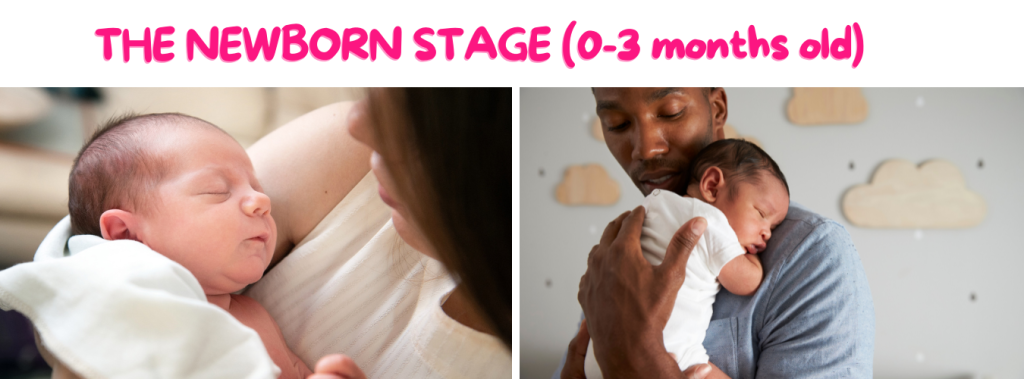
Stage 2: Infancy (4 to 12 Months Old)
The infancy stage is a period of astonishing growth. Babies rapidly develop foundational physical, social, emotional, and intellectual skills. They transition from total dependence toward mobility, communication, curiosity, and blossoming independence. When babies are in this stage they are considered infants. You will see plenty of development from the newborn to the infant stage.
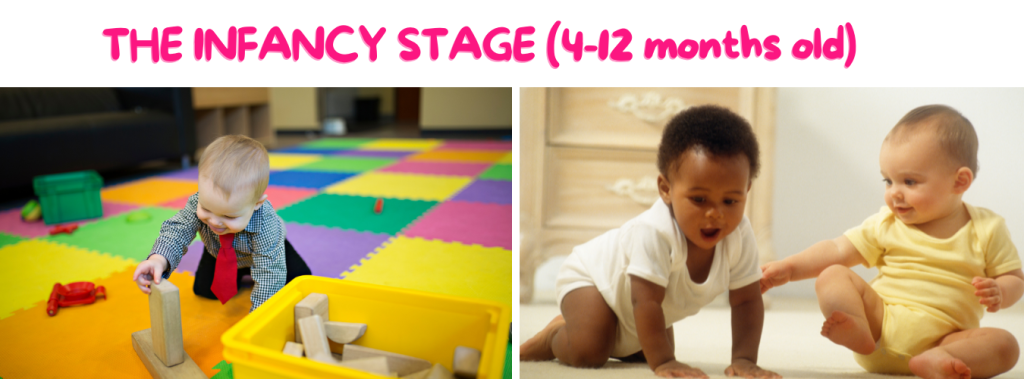
Stage 3: Toddler (Ages 1 to 3 Years)
In the toddler years, children become little explorers. Mobility explodes as they walk, run, jump and climb. Language blossoms from first words to sentences. Socialization skills develop through play. Toddlers seek independence but still rely heavily on their parents.
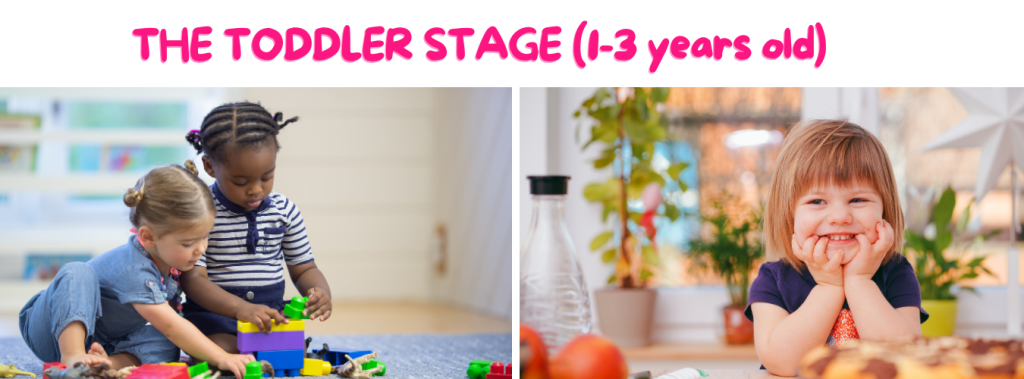
Stage 4: Preschool Age (Ages 3 to 4 Years)
Preschoolers grow more self-aware and social. Physical abilities improve dramatically as they gain control and coordination. Cognition and language advance as preschoolers engage in pretend play, understand stories, and speak in full sentences. Independence increases.

Stage 5: Early School Age (Ages 4 to 5 Years)
In this stage, kids become even more independent and mobile. Complex thinking strengthens with more developed reasoning and memory. Language matures as 5-year-olds engage in conversations. Social skills grow through cooperation and friendships. Curiosity spikes as they interact more actively with the world.
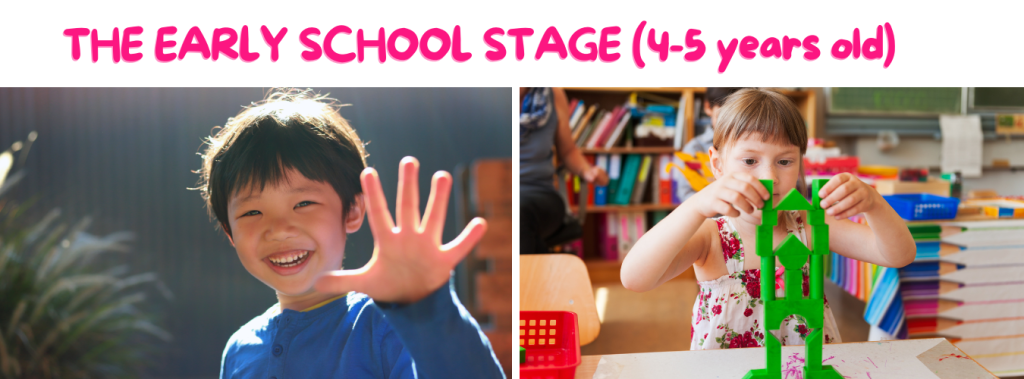
Infancy Developmental Milestones (Birth to 12 Months)
The first year of life sees astounding growth across developmental domains as infants transition from helpless newborns to active, mobile babies. Here’s an overview of the major infancy milestones.
Physical Milestones
- Lifts head when on stomach (3 months)
- Rolls from back to stomach (4 months)
- Sits unsupported (6 months)
- Crawls (8 months)
- Pulls up to stand (9 months)
- Walks holding on, then independently (12 months)
Cognitive Milestones
- Recognizes parents (3-4 months)
- Finds hidden objects (9 months)
- Explores objects in hands (3-6 months)
- Bangs objects together (9 months)
- Begins to understand object permanence
Language Milestones
- Coos and babbles (3-6 months)
- Responds to own name (5-7 months)
- Babbles with inflection (5-10 months)
- Says “dada”, “mama” (8-12 months)
- Uses simple gestures like waving (9-12 months)
Social & Emotional Milestones
- Begins to smile (1-3 months)
- Distinguishes emotions like happiness vs anger (5-7 months)
- Shows attachment to parents and caregivers (6-9 months)
- Exhibits separation anxiety when parents leave (7-12 months)
- Shows interest in mirror image (9-12 months)
As infants reach these milestones, remember that skill acquisition is variable. Premature babies may reach them slightly later. But early intervention for any major delays can make a big difference.
Supporting Development: Infancy
Parents can support healthy infant development through:
- Maintaining routines but adapting to baby’s needs
- Providing adequate tummy time for strength/coordination
- Using facial expressions, gestures, and words to communicate
- Reading, singing, and talking to stimulate language
- Encouraging exploration of surroundings
- Responding promptly to cries and distress signals
- Creating safe spaces for mobility practice
- Doing exercises like touching toes while changing diapers
- Providing grasping toys to build fine motor skills
The attentive nurturing and stimulation babies receive during the infancy stage establishes a foundation for lifelong emotional security and learning.
Toddler Developmental Milestones (Ages 1 to 3 Years)
The toddler years mark a huge shift toward independence. Mobility explodes, language blossoms, thinking advances, and socialization skills develop. Here are the major toddler milestones.
Physical Milestones
- Walks steadily (12-18 months)
- Crawls upstairs (12-18 months)
- Kicks a ball (24 months)
- Turns pages in a book (24 months)
- Walks up steps holding rail (24 months)
- Runs fairly well (30 months)
- Pedals tricycle (30-36 months)
Cognitive Milestones
- Points to named pictures/objects (15-18 months)
- Sorts by shape and color (24 months)
- Matches object to pictures (24 months)
- Solves simple puzzles (36 months)
- Understands concepts like “in”, “on”, and “under” (36 months)
Language Milestones
- Says 10-15 words (18 months)
- Combines 2 words like “more milk” (24 months)
- Names objects in pictures (24 months)
- Uses pronouns like “me”, “you”, and “mine” (30 months)
- Carries on 2-3 sentence conversations (36 months)
Social & Emotional Milestones
- Interested in other children (24 months)
- Begins pretend play like feeding doll (24 months)
- Shows affection for friends (36 months)
- Copies adults and friends (like helping with chores) (24-36 months)
- Shows concern for a crying friend (30-36 months)
During the toddler years, expect lots of exploration, beginning autonomy, and a mix of cooperation and defiance. Responding to the unique needs of this age fosters self-esteem and developmental skills.
Supporting Development: Toddlerhood
Parents can promote healthy toddler development through:
- Providing a safe environment for mobility practice
- Engaging in pretend play to encourage imagination
- Giving choices to support growing independence
- Reading books and labeling objects to build language
- Setting gentle but consistent limits
- Encouraging interactions with other children
- Celebrating accomplishments like first steps
- Using redirection when emotions run high
- Offering support through emotional outbursts
The social, emotional and cognitive seeds planted during the toddler years blossom over time. Consistent nurturing and support lay the groundwork for future relationships, self-regulation and learning.
Preschooler Developmental Milestones (Ages 3 to 4 Years)
The preschool years see a rapid refinement of physical abilities, language skills, imagination, and independence. Here are the major developmental milestones for 3- and 4-year-olds:
Physical Milestones
- Stands on 1 foot for up to 9 seconds (3 years)
- Catches balls with both hands (3 years)
- Hops on 1 foot (4 years)
- Swings and climbs with ease (4 years)
- Draws circles and squares (4 years)
- Buttons and unbuttons (4 years)
Cognitive Milestones
- Follows 3-part commands (3 years)
- Recalls parts of a story (3 years)
- Correctly names familiar colors (4 years)
- Understands “same” vs “different” (4 years)
- Tells stories that stick to the topic (4 years)
Language Milestones
- Follows 2-3 step directions (3 years)
- Knows rhyming words (3 years)
- Asks “why” questions (3 years)
- Says first name, age, and gender (4 years)
- Speaks in sentences of 5-6 words (4 years)
Social & Emotional Milestones
- Shares some of the time (3 years)
- Often plays near other children (3 years)
- More likely to agree with rules (4 years)
- Likes to sing, dance, and act (4 years)
- More imaginative in play (4 years)
Preschoolers seek independence but still require nurturing and reassurance. Responsive parenting and stimulation further develop emerging abilities.
Supporting Development: Preschool Age
Here are some tips for promoting healthy growth and development in preschoolers:
- Provide opportunities for cooperative play
- Set clear limits and reinforce positive behaviors
- Ask questions that boost thinking skills
- Encourage pretend play and creativity
- Read books and discuss stories together
- Have the child help with age-appropriate chores
- Allow safe exploration of surroundings
- Plan physically active games and exercises
- Celebrate accomplishments like pedaling a bike
The preschool years represent an important transition between babyhood and childhood. Consistent support builds confidence and abilities that pave the way for future academic and social success.
Early School-Age Developmental Milestones (Ages 4 to 5 Years)
The year before starting kindergarten brings exciting cognitive, physical, emotional, and social advancements. Here are some major milestones for 4- and 5-year-olds:
Physical Milestones
- Stands on 1 foot for up to 20 seconds (4 years)
- Catches bounced balls most of the time (5 years)
- Performs somersaults (5 years)
- Uses utensils and crayons with precision (5 years)
- Hops in place (5 years)
- Walks up/down stairs with alternating feet (5 years)
Cognitive Milestones
- Names colors and counts to 10 (4 years)
- Better understands time and sequence (4 years)
- Recalls parts of a story in order (5 years)
- Can count 10+ objects (5 years)
- Understands concepts like “why”, “how”, and “when” (5 years)
Language Milestones
- Speaks clearly in adult-like sentences (4 years)
- Tells simple stories (4 years)
- Uses future tense like “we will go” (5 years)
- Asks the meaning of words (5 years)
- Rhymes words (5 years)
Social & Emotional Milestones
- More likely to agree to rules (4 years)
- Likes to sing, dance, and act (4 years)
- Distinguishes real vs imaginary (5 years)
- More creative in fantasy play (5 years)
- Cooperates/shares (5 years)
Kindergarten readiness emerges during this stage as youngsters gain independence, motor control, and verbal communication abilities.
Supporting Development: Early School Age
Here are some tips for fostering healthy development leading up to the start of elementary school:
- Provide opportunities for cooperative play
- Offer rewards and praise for positive behaviors
- Ask questions that spur critical thinking
- Set rules and discuss the importance of following them
- Plan vigorous outdoor play and exercise
- Practice holding pencils and scissors correctly
- Read books and discuss concepts together
- Have the child participate in family chores
- Encourage independence in self-care tasks
The transition to elementary school is easier when children have developed physical coordination, pre-academic skills, confidence and self-regulation during the preschool years.
The Importance of Early Identification of Developmental Delays
While most kids reach developmental milestones within an expected time range, delays or disorders are still relatively common. Early identification of any lags in reaching movement, language, social, cognitive or emotional milestones is crucial.
The earlier interventions can begin through special education services, speech therapy, physical therapy or other therapies, the better long-term outcomes will be for children.
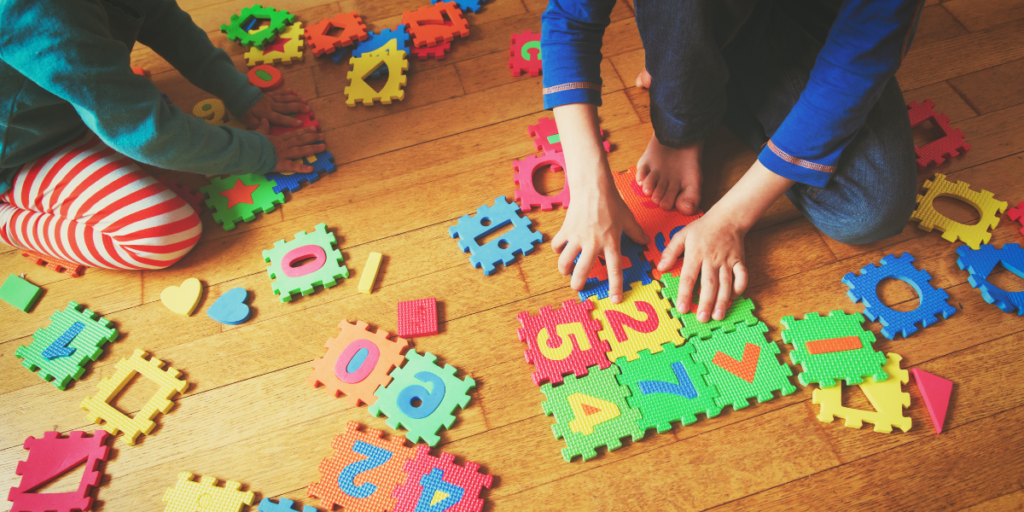
Some signs of possible developmental delays in the first 5 years include:
- Not reaching movement milestones like sitting, crawling, walking
- Not pointing or gesturing by 12 months
- Limited or no words by age 2
- Not gaining new skills like self-feeding, dressing
- Poor eye contact
- Not responding to sounds or own name
- Loss of previously mastered skills
- Little interest in toys or surroundings
- Extreme difficulty calming tantrums
- Lack of interest in peers by ages 3-4
Talk to your pediatrician right away about scheduling a developmental screening if you have concerns. Early intervention can truly change the trajectory of children’s learning and abilities.
Conclusion
The early childhood years, from infancy to school age, represent a time of remarkable growth and learning across the motor, language, cognitive, social, and emotional domains. All kids develop at their own pace, but understanding the standard developmental milestones gives parents, caregivers, and educators a framework for fostering healthy development. Hopefully, this article has been helpful for learning stages of early child development.
Providing nurturing and stimulating environments helps children build critical skills during the formative early years. Recognizing potential red flags for delays allows for early interventions if needed. With support and opportunities to learn through interaction during these precious first years, children gain abilities that form the foundation for lifelong success.
